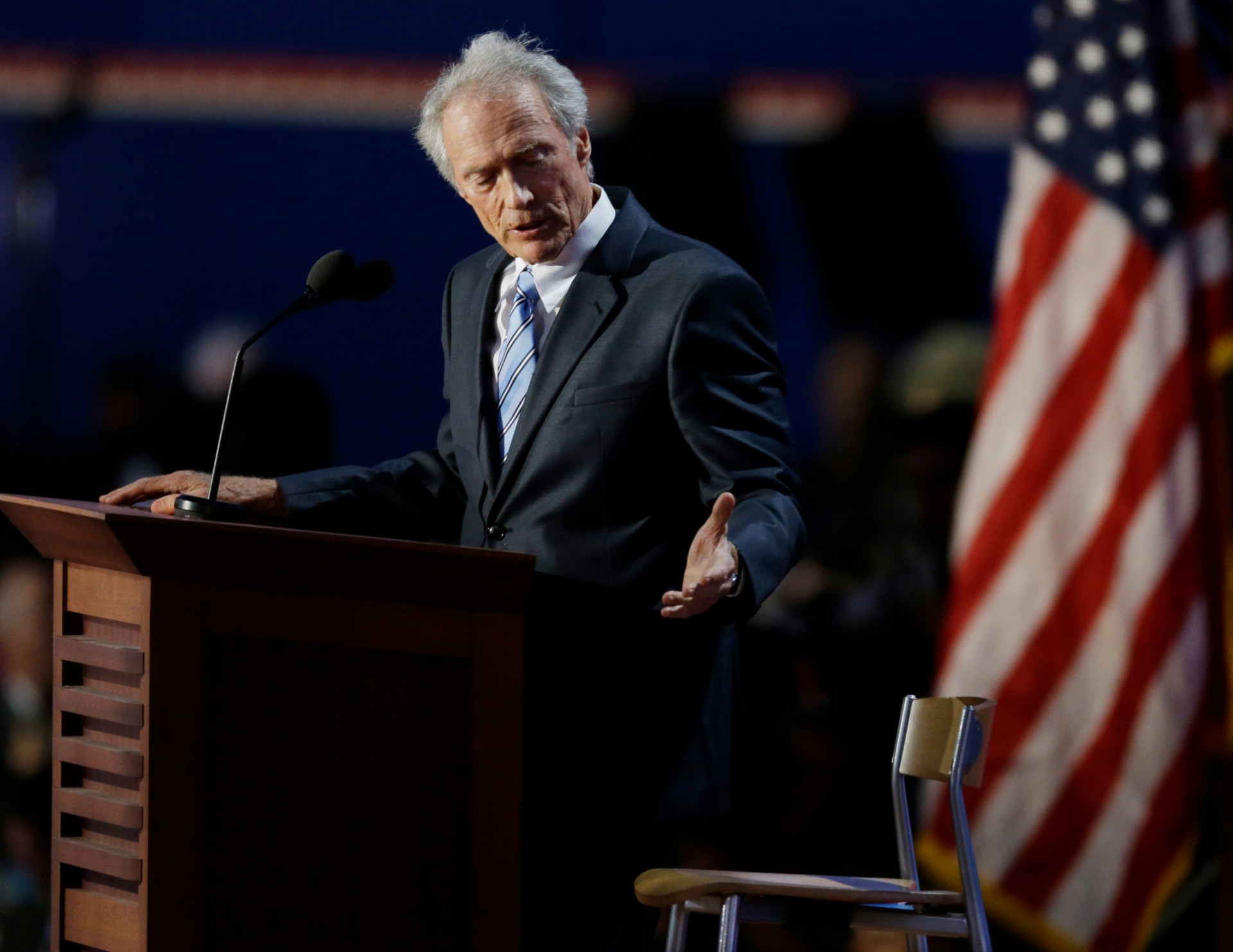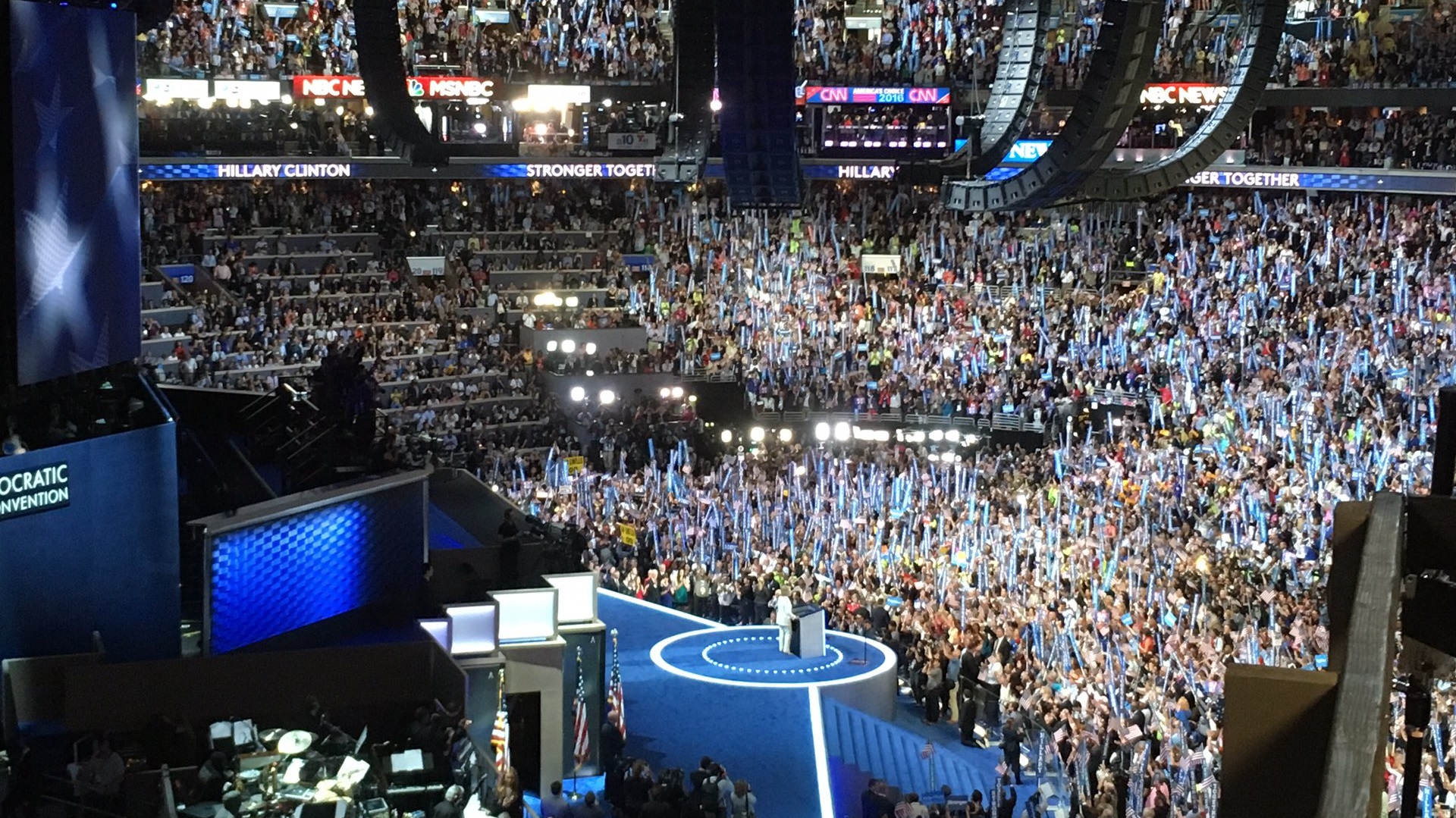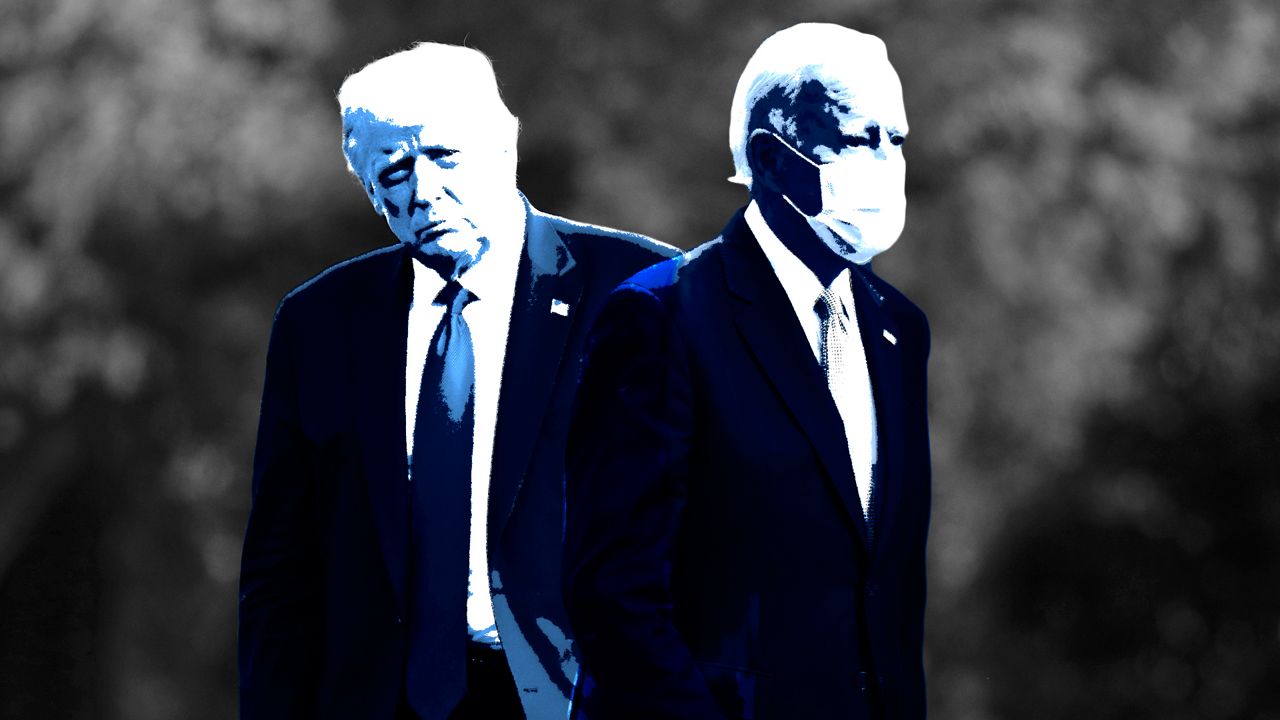One is an Icelandic national park with a name that’s hard to comprehend.
The other is a political speech by a famous actor that was hard to comprehend.
And if you stick with me you’ll see why it’s not so weird to put Thingvellir in southwest Iceland in the same sentence as Clint Eastwood’s turn with an empty chair in 2012.
I mean, given all that’s gone on since March, weird is an outdated term anyway, no?
We start with Thingvellir, a lakefront national park of steep volcanic rock. I’ve never been, but my wife tells me it’s lovely, with a compelling political history. For about 1,000 years, until 1798, this rift valley was basically an early parliament: early inhabitants traveled there for annual outdoor meetings to discuss law and governance. The center of it all was the Lögberg — the “Law Rock” — where the leader and regular citizens orated.

Clint Eastwood's speech to an empty chair was a bit of dramatic flair that was also panned at the Republican National Convention in Tampa in 2012. (AP)
Two-hundred or so years later in teeming, steamy Tampa, Florida, Clint Eastwood spoke to a chair at the Republican National Convention; he pretended President Obama was sitting in it. (Yes, he really talked to the empty chair, which he directed an aide to cart onstage as a last-minute prop). It looked odd from the audience, and really wasn’t a winner on TV, although nominee Mitt Romney probably lost for a lot of other reasons.
Anyway, this phantom Icelandic parliament around the law rock, and a phantom American president sitting in an empty chair, comes up because of COVID-19. I don’t mean to be flip; some casualties count more than others — most importantly 600,000 fatalities, a quarter of them in the United States.
But presidential conventions as we knew them, a quadrennial summertime rite of our own democratic process, are also gone, for this election year and possibly forever. Right now, they’re seen as simply too risky: the air travel and cheek-to-jowl screaming indoors for hours, which has a tendency to spread spittle and, thus, the virus.

The Democratic National Convention in Philadelphia in 2016. (File)
Plans are fluid for both, but for Democrats, four days at Milwaukee’s Fiserv Forum are morphing into a tighter convention where Joe Biden is the only major political figure actually in Cream City. Forget six feet; Biden’s nominators, high-profile boosters, and Democratic poohbahs will be hundreds of miles away.
Instead, The Daily Beast reported, the Democrats’ “Convention Across America” will trade in the typical convention floor roll call for “iconic or message-based locations in 57 states and territories across America,” including the Edmund Pettus Bridge in Alabama, site of the 1965 “Bloody Sunday” protest against segregation.
(“Democrats are exploring all options to host an inspiring event that unites the nation around Joe Biden's vision for America,” a spokesperson emailed me.)
As for the Republicans, it’s arguably trickier. Pres. Trump axed Charlotte in early June, when it wouldn’t clear him to pack the Spectrum Center. The GOP instead is apparently now keeping some business in Charlotte but also signaled events will be in Jacksonville, Florida — a decision it announced just as viral cases were beginning to surge. (Cases in the county climbed to 435 on Wednesday, from 10 on June 1).
There are plans for Republicans to mix indoor and outdoor events in Jacksonville, with fewer attendees. (A spokesperson didn’t immediately return my request for comment.)
But Monday, the local Jacksonville sheriff, a Republican, said he has "significant concerns with the viability" of his city hosting the event. File this under TBD.
A packed crowd at the Republican National Convention in Cleveland in 2016. (File)
Conventions are criticized for lacking spontaneity; I’ve been to a bunch — more, if you count outside protests I covered — and apart from Eastwood’s chair, I can recall just one really surprising, unscripted moment: In 2016, supporters of Bernie Sanders booed and jeered on the first night in Philadelphia, when the vanquished candidate endorsed Hillary Clinton, presaging a rift that carried through Election Day.
Here we at last have some drama, only it’s whether there actually will be an RNC or whether the president just opens the doors to the Donald J. Trump Grand Ballroom at Mar-a-Lago.
Modern nominating conventions date to 1831; for much of that time, intrigue was inherent because voters didn’t get a direct say, leading to multiple ballots, party bosses, signals spotted in the cigar smoke. It wasn’t until 1901 that the first state held a primary, but as historian Jill Lepore notes, it’s only since 1968 that “no one in either party has successfully defeated at the convention the candidate who won a plurality of the primaries and the caucuses.” The candidates have long chosen their own running mates, as opposed to having insiders foist them onto the ticket.
The reforms may have been good for democracy, but they left a large question mark over why conventions are still needed. Sure, there were important things: the actual nominating process; the who is talking to who chatter; the writing of the party platform; and schmoozing on someone else’s dime. It was important to cover journalistically — especially exposing who was footing the bill for it all — but not exactly riveting.
With the endgame predetermined, networks increasingly skeptical of ceding airtime, and much of the public zoning out, was there a point to the fuss?
In the digital age, it was adding up to an anachronism. Like it’s done in many ways, COVID-19 turbocharged things; the conventions are to my mind unlikely to ever be the same.
Put another way, in-person hobnobbing, spinning and speechifying — like that one in 2012 to an empty chair in a packed arena — are going the way of Lögberg, the law rock of Thingvellir.
POSTSCRIPT: I want to spend a moment mourning Rep. John Lewis, civil rights icon, “The Conscience of the Congress”, who died last week.
Far more eloquent words than mine have been offered; a tribute to his legacy in this turbulent time may also be hearing or reading Lewis’ own.
Here are four suggestions: his 1963 speech in Washington; a 1998 op-ed “Forgiving George Wallace;” a 2014 interview on faith and the civil rights movement; and this tweet from last year:
“Do not get lost in a sea of despair. Do not become bitter or hostile. Be hopeful, be optimistic. Never, ever be afraid to make some noise and get in good trouble, necessary trouble. We will find a way to make a way out of no way. #goodtrouble”



